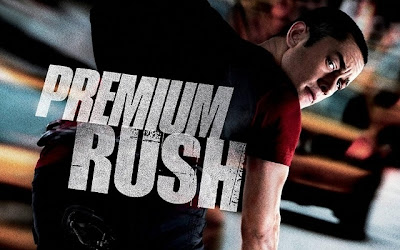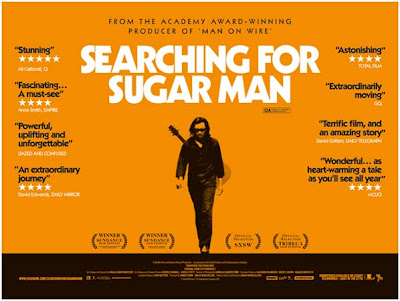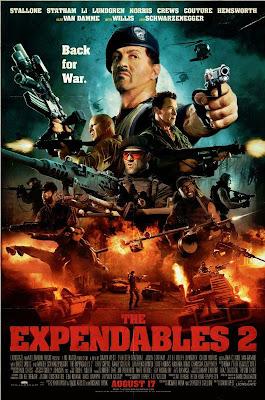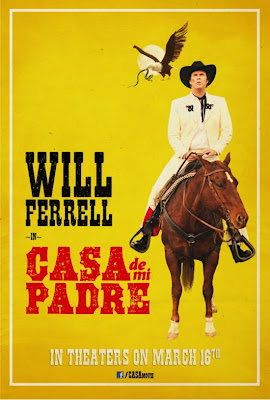EDITOR'S NOTE: The Dark Knight Rises is the sort of film on which I could easily spend 3,000 words. In an effort to keep this review easily digestible, however, I have glossed over and/or completely ignored numerous highlights that probably could/should be discussed. Apologies in advance. Also, I believe this review is completely devoid of spoilers (always my goal) but since you're probably going to see this movie anyway, I would recommend checking it out for yourself before reading. This assumes, wrongly of course, that anyone is actually reading this space rather than absentmindedly browsing through it while looking for literally any excuse to not work.
There’s a reason why sports teams retire the numbers of their greatest players, why the biggest bands close instead of open, and why JK Rowling’s next book will probably stink: no one wants to follow a legend. If anyone ever dared to don number 23 while playing for the Chicago Bulls, he would be placing upon himself a target roughly the size of Rhode Island. This is essentially the place Christopher Nolan found himself in in 2008 when The Dark Knight solidified its place as one of (if not the) greatest superhero movies of all time. Now four years down the line, Nolan delivers The Dark Knight Rises, a fitting and final chapter to his Batman story that attempts, with grand ambition and mixed success, to build upon the groundwork laid out in his last film.
Eight years after the death of Harvey Dent, Gotham City has essentially eradicated the mob activity that once ravaged the city. In that time, neither Bruce Wayne (Christian Bale) nor Batman, who was blamed for Dent’s death, have been seen by the public and the need for warriors like him and police commissioner Jim Gordon (Gary Oldman) has been lessened. But when a new threat known as Bane (Tom Hardy), a masked hooligan with a horrifying plan and the firepower to see it to fruition, begins terrorizing the city, Wayne is forced to bring Batman out of retirement. He underestimates Bane, however, and soon the masked villain has imprisoned Wayne in a pit of despair worlds away and taken possession of a nuclear bomb which he uses to maintain control over Gotham. With his own survival hanging in the balance, Batman must muster all of his strength in order to battle perhaps his strongest opponent yet, with the aid of some unlikely allies.
First of all, it should be noted that The Dark Knight Rises certainly has its share of flaws. If you search through a handful of reviews, you’ll likely find a host of complaints as somehow this has become one of the most divisive films of the year. Those reviewers, whether professional or amateur, are of course entitled to their opinions but you will not get much in the way of negatives from this review. In my mind, almost all of the flaws and perceived flaws within The Dark Knight Rises come down to one of two things: the compression of what probably should have been two films into one (even one as long as this one is) and the viewer/reviewer placing the of his/her own expectations on the film before ever stepping foot in the theater. The second act of TDKR is indeed choppy in places and was probably pared down significantly to get the film in under three hours. Perhaps in hindsight, Nolan should have bought into the current trend of separating the finale of an epic franchise into two parts, thereby giving himself more room for character and (more importantly in this case) story development. I think that would have eliminated most of the real complaints that viewers have had about this film. On the other hand, Nolan could have done nothing to prevent his film from being held unfairly to the standard set by The Dark Knight, save of purposely sabotaging that film a bit in order to make his finale look better. To those who have nitpicked The Dark Knight Rises to death because it isn’t the greatest superhero movie of all time, I would kindly ask you to shut it and instead, enjoy this film for what it is, which is pretty stinking great.
Without question, The Dark Knight Rises is the most ambitious of the three films in this series. It is truly an epic that takes on a complex plot loaded to the very brim (and, in fairness, perhaps beyond) of what the film can handle. In this manner, it is ahead of The Dark Knight, a film I love dearly but which does not bring to the table an especially complex storyline, instead relying on a mesmerizing performance by Heath Ledger to bring everything together. Rises attempts to piece together a far-reaching narrative that I personally had no problem fully buying into even if, again, it could have used more time to develop. One of Nolan’s greatest strengths behind the camera is his ability to add weight to his films, to create high stakes within the story that the viewer can almost tangibly feel and this film is no exception. Nolan creates a set of circumstances, building off of the climate set in The Dark Knight, in which Batman and his fight matter and in doing so, he forces the viewer (or at least, this viewer) to care about a wealthy playboy running around in a Halloween costume. This of course is the product of the culmination of all three films but I think it reaches its peak here, adding a measure of significance to the film that I can’t necessarily remember feeling with any other superhero adventure.
From the standpoint of the actors and characters, Rises lacks the dynamic central figure that the Joker represented in Dark Knightbut overall, I think it may be the best of the series. As with the first two films, Bale isn’t given much of an opportunity to really act but he does bring a healthy dose of emotion to the few scenes in which he is asked to do so. Both Morgan Freeman and Michael Caine have had more screen time in the previous films than they do here but both do their jobs admirably this time around. Caine in particular makes the most of his time on camera, delivering a sobering speech at one point that has been picked on by some critics but which worked for me completely. On the flip side, Commissioner Gordon has a much bigger role in Rises than he has before, which simply means the world is treated to more of Gary Oldman, a proposition I can’t imagine anyone ever complaining about. Joseph Gordon-Levitt hits the mark perfectly as a young detective who winds up taking on a much bigger role in the fight against Bane, serving as a level-headed confidant of sorts for both Wayne and Gordon. His mix of hard-knocks toughness, slight nativity, and uncompromising sense of rightness make him a powerful ally and an excellent representation of the viewer in the midst of all the superheroes, super villains, and super geniuses. And Anne Hathaway, whom I confess I have never liked, is magnificent in her role as Selina Kyle/Catwoman, a complex character who continually wages war against herself as to where she belongs in the fight. In my mind, this is by far the most dynamic performance of Hathaway’s career and at times, she is the most important character in the field.
This brings us to Tom Hardy, whose physically impressive baddie has been raked over the coals across the Internet. While Bane’s motives aren’t always clear, his voice, spoken Darth Vader-like through a futuristic mask, is even more indecipherable. This is the only flaw within Rises that truly stuck out to me as something that could have and should have been changed. Bane is already a less compelling villain than the Joker was and adding in the confusion that comes from his speech issue puts him at a further disadvantage. However, this does not keep him from becoming a menacing figure in his own right. Personally I think the decision to move from the Joker to Bane was a stroke of genius for Nolan in that the two villains could not be any more different. The Joker is a cerebral, crazy, deviant personality who thrives on utter chaos. Bane, on the other hand, is a physically imposing, controlled, righteous antagonist who follows a rigid plan to the letter. I believe this transition was Nolan’s best attempt to allow this film’s villain to stand apart from the legendary performance that highlighted the last film. Obviously that didn’t work in terms of convincing fanboys to ignore the urge to compare villains but for me, the differentiation was appreciated and for his part, I think Hardy did a solid job of making Bane a worthy and at times terrifying opponent.
Putting all of this together and tying it up with a satisfying and engrossing final 15 minutes, what you have in
Rises is a truly impressive superhero epic that leaves the viewer only wanting more. As such, I firmly believe that this is a film that will only get better with future viewings. Once critics and viewers have some distance between themselves and their unchecked expectations most are likely to come around on
Risesas one of the best superhero films of all time. Truth be told, I toyed with the idea that this film is actually
betterthan
Dark Knight before finally talking myself down. Regardless,
Risesrepresents an illustrious achievement in film that will not be easily replicated by its contemporaries or its inevitable descendants.



























